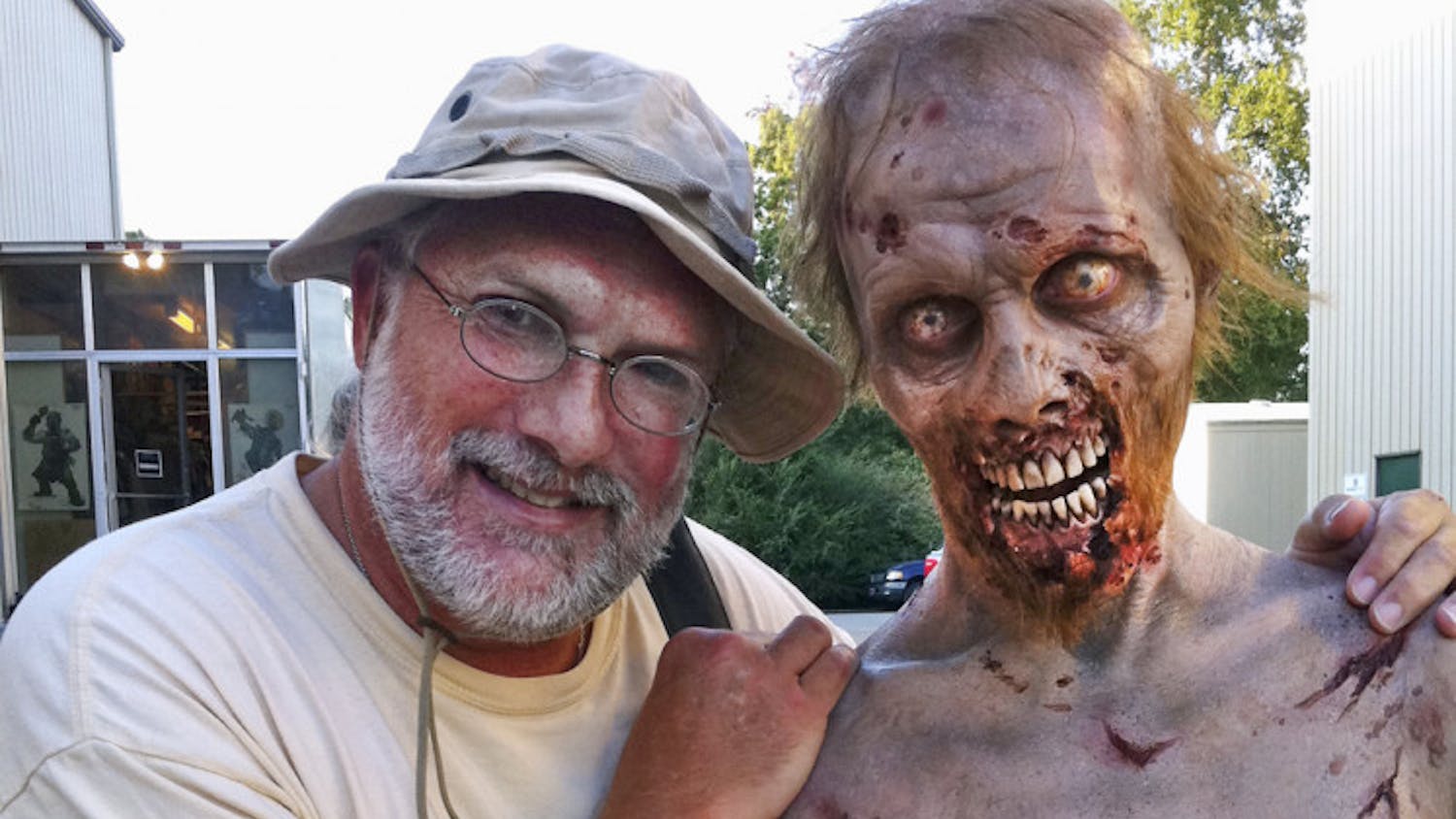So, the season six finale of “The Walking Dead” happened Sunday night. Wasn’t it crazy? Wasn’t it intense? There’s so much to discuss about this series, in fact, that AMC Networks created a talk show centered around it called “Talking Dead.” You all probably know this, because the talk show has come on just after the most recent episode of “The Walking Dead” since the premiere of season two in 2011. AMC has copy-pasted this formula a few times: “Talking Saul” parallels “Better Call Saul” and “Talking Bad” paralleled “Breaking Bad.” The network’s got a knack for creating whole subcultures around these shows, which is really a double-edged sword.
On Monday, the season finale was the talk of the town. And this kind of communion is great; people bonding over art is part of the reason this art exists. This happens often with shows like “The Walking Dead” — we’ve all seen the aftermath of particularly shocking episodes of “House of Cards,” “Empire” and “Game of Thrones.” These talk shows exist to incite discussion and build hype, which returns a more loyal and expansive fan base.
But, with the season finale of “The Walking Dead,” fans were outraged at the cliffhanger. Viewers now have to wait until season seven in October to have closure. But at whom are we viewers outraged?
While we love seeing the cast and crew express love for their work of art, we at the Alligator can’t help but feel pulled away from our favorite realities when we tune into these talk shows. It was a bit jarring to see Beth die in season five and have her actress, Emily Kinney, hop enthusiastically, and very much alive, onto the set of “Talking Dead” immediately after. We love the work the cast and crew do, but these talk shows have the potential to remove us from the reality we got so invested in the first place. We reflect that removal in how we discuss these shows among ourselves. All too often, we ask questions like, “Who’s going to get killed off next?” They’re easy questions to ask, and they let us exercise our creativity as we conjure up our own fantasies of how the story will unfold. But when we ask these questions, we’re treating the narrative as a production instead of considering the characters or the world in which they live; instead, we’re considering the writers.
We treat the writers as the ones responsible for deaths and major events. And while that’s technically true, as an audience our suspension of disbelief allows us to embrace the production as a living, breathing world — if we suspend our disbelief, then we should be blaming the characters as the ones responsible.
There is so much attention called to the fact that these are shows with production values and actors, rather than narrative experiences with plot twists and grim realities. The writers, directors, producers, actors and crew of “The Walking Dead” work to create a world that feels real enough for us to accept and indulge in. We suspect the last thing they’d want is for their audience to throw that immersion to the wind in exchange for discussion and insight on actors’ lives.
Instead of dissecting a show and its cast bit by bit, we’ll sit back and enjoy the show how we feel it was meant to be enjoyed. It is entertainment, after all.




